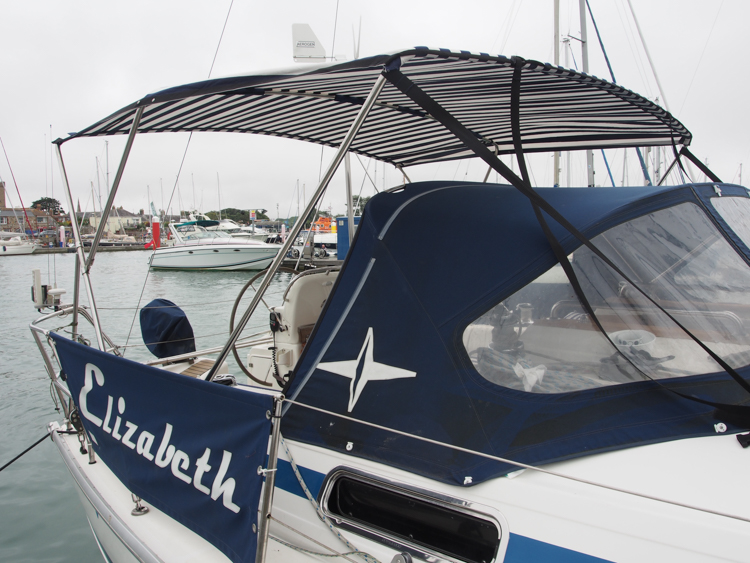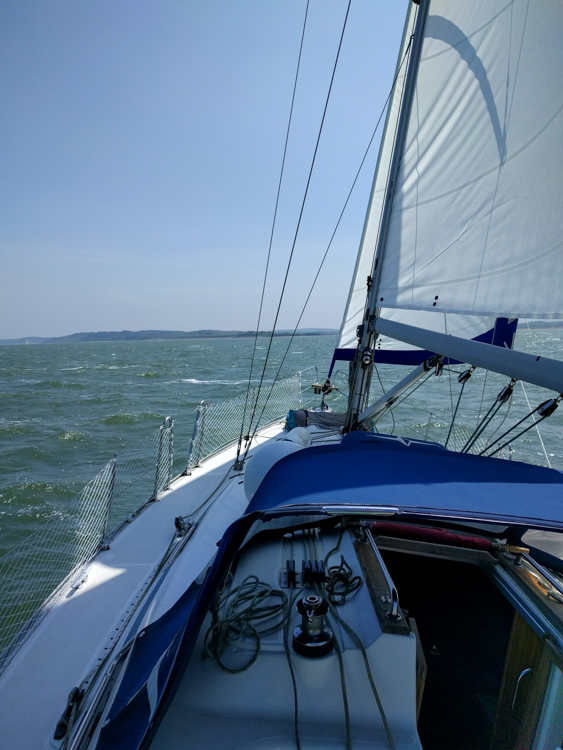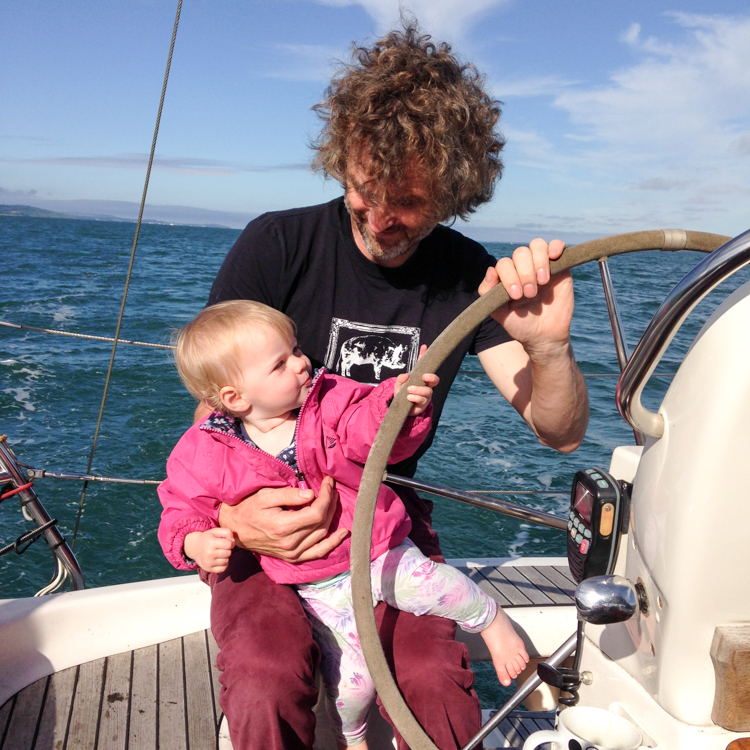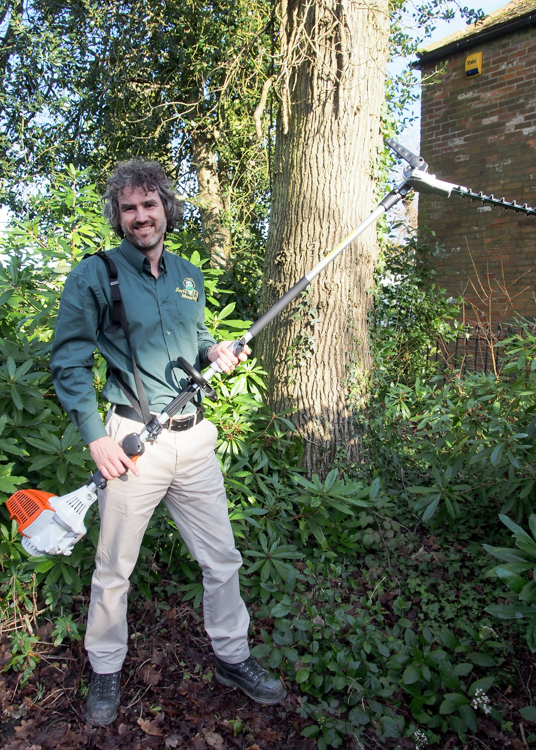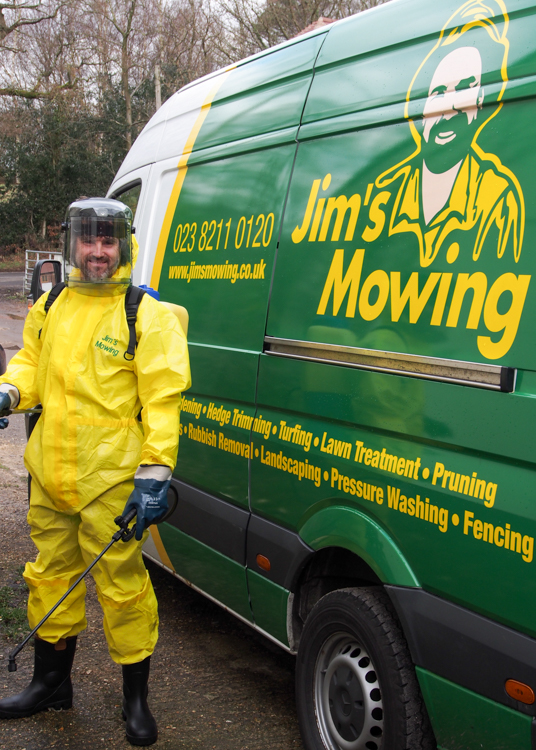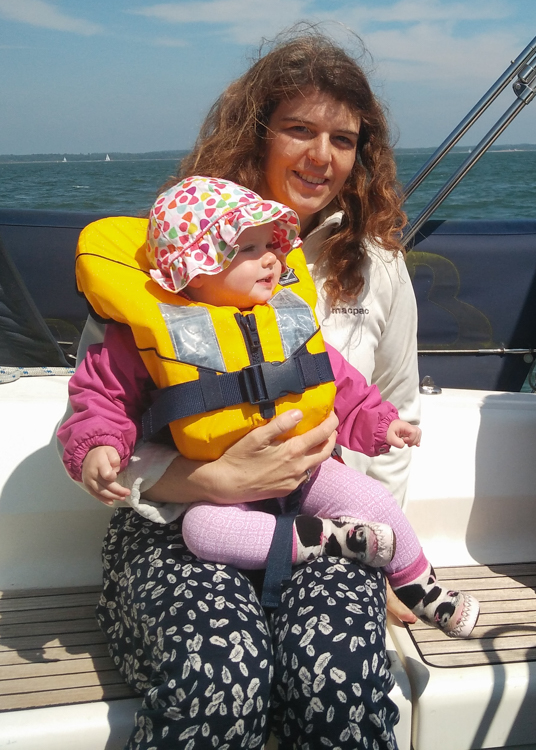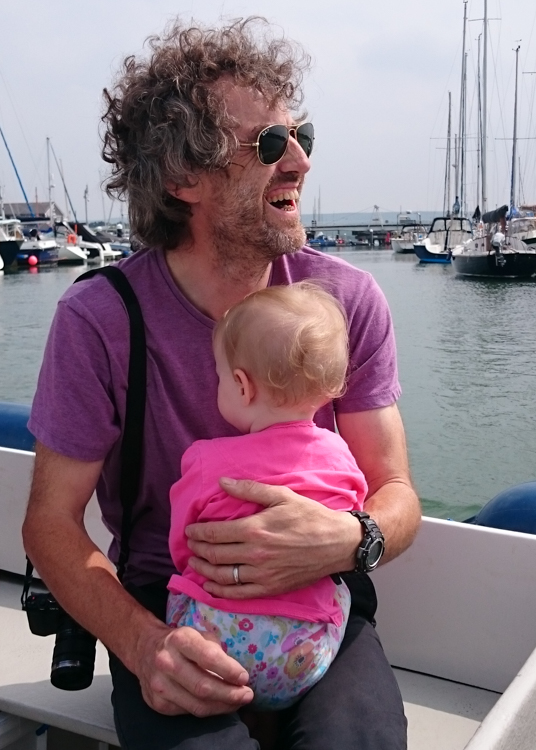Having moved all of our gear from our previous yacht Pindimara to our new yacht Elizabeth, it was time to beef up her systems to get her ready for the long trip from England to Australia. We unpacked everything and put it all away, finding that, because of the ducting for the heating system, 39′ Elizabeth had much less storage space than 34′ Pindimara.
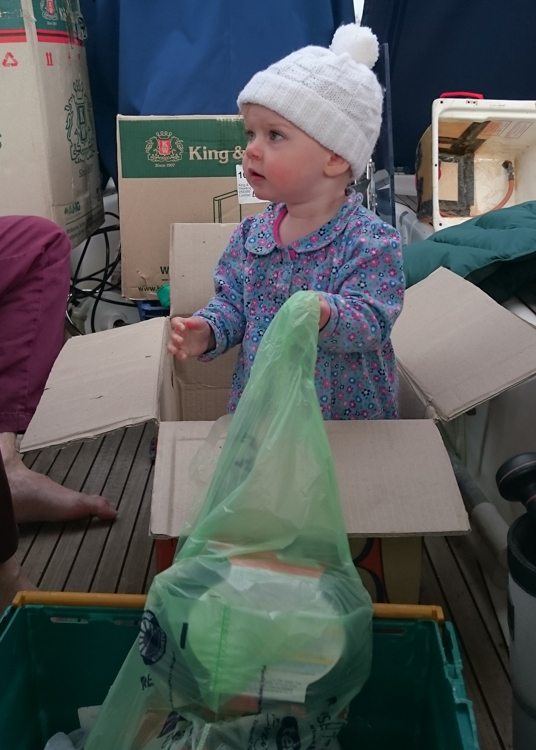
Where does this go, Papa? 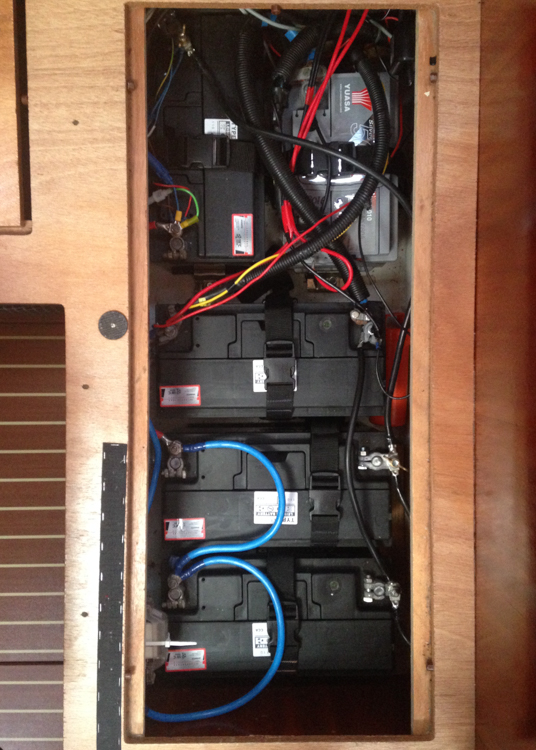
Squeezing five batteries into the space for three
Still, we got it all in, removed the TV and sound system to make space for food and tools, upgraded the elderly batteries, and checked all the subsystems to ensure that they were fit for purpose.
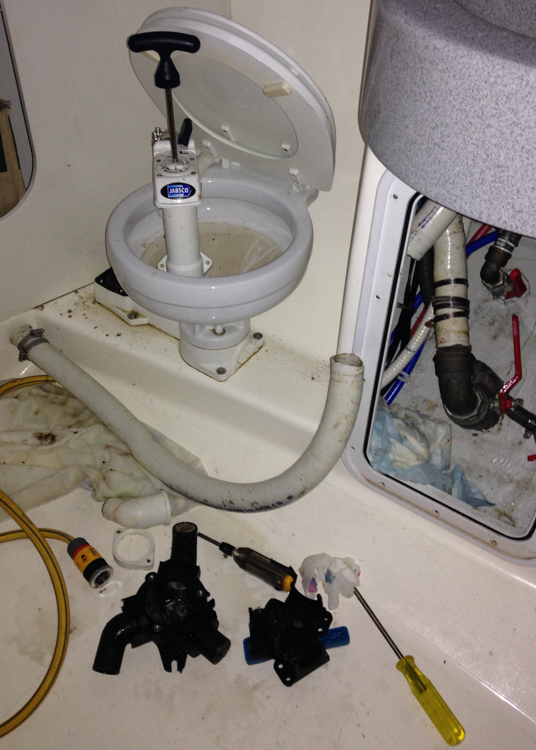
Everybody’s favourite maintenance task 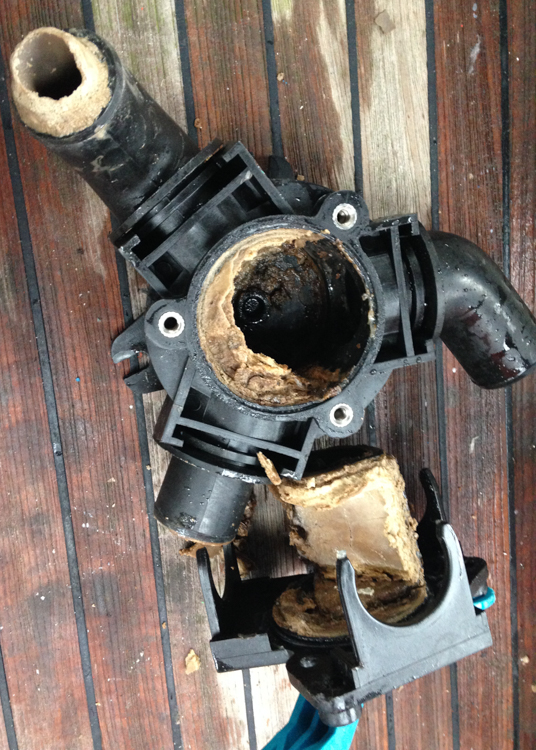
It might flush better after a clean
I spent a relaxed sunny afternoon threading child-friendly safety nets, and an inordinate amount of time in my shipping-container workshop, expanding the ridiculously small Euro-sized fibreglass gas cupboard to fit a standard LPG canister.

Fitting the netting. Very calm, very Zen. 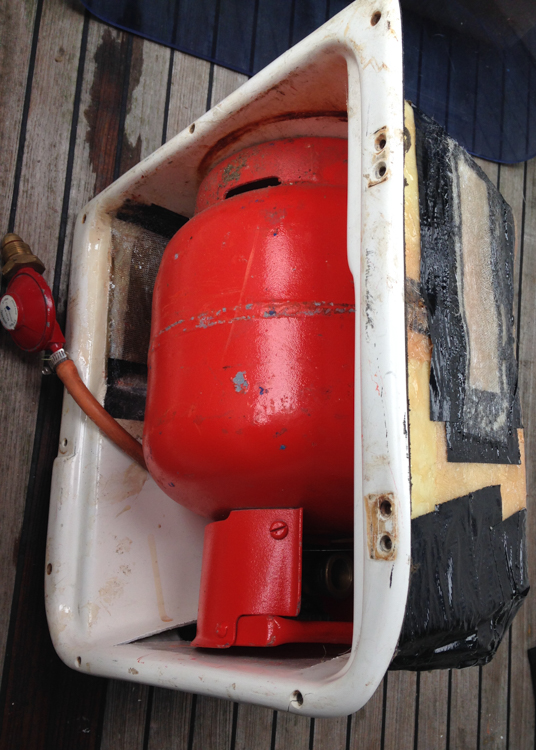
Rebuilding the fibreglass to fit a standard bottle
…and sometimes, we even went sailing!
We took Elizabeth to Cowes to repair a dent where somebody had rudely rammed her in the marina, and took the opportunity to get my expanded gas cabinet properly installed, and to do the antifouling. We also discovered that the occasional alarming prop shudder that we’d experienced was down to, uh, the propeller being so fractured that is wasn’t really attached to the boat at all. It’s a mystery how it had stayed on the shaft all this time.
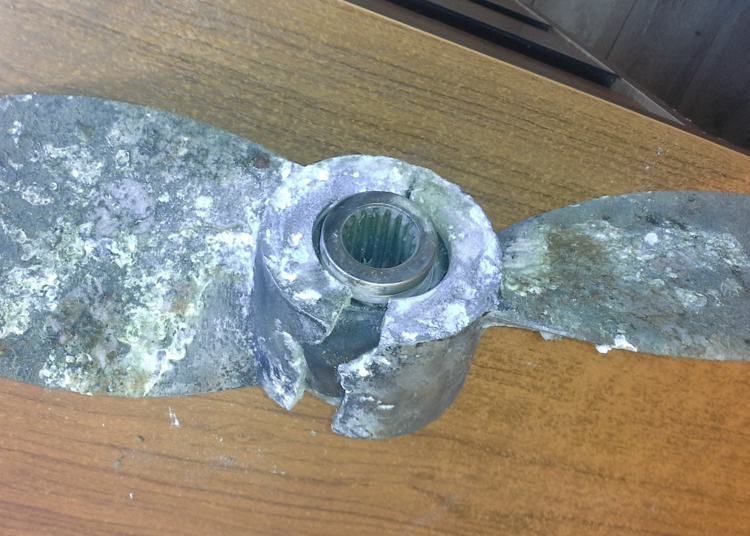
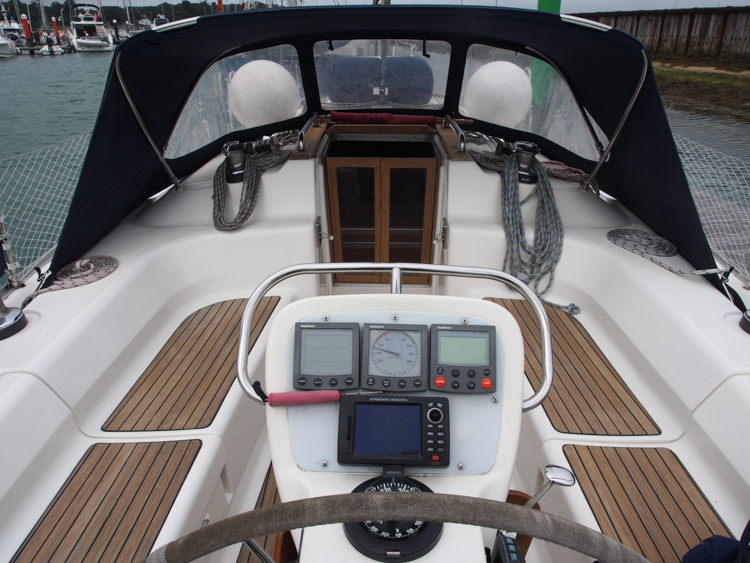
Meanwhile, in the real world, my gardening business had reached a point where I needed to take on occasional staff in order to grow. Some tasks, such as my favourite job of fencing, really benefit from a second set of hands. Unfortunately, England was going through a backlash against the perceived threats of the “gig economy” and “zero hours contracts”, and there was all kinds of legislation coming in against what normal people would call piece-work. Since gardening is not only seasonal but weather-dependent, it makes no sense to pay an employee on days when neither of us are working, but that was the direction in which the legislation was heading.
The other option would be to take on a proper permanent employee or apprentice, but in order to make that financially viable, I would then need to buy a second van and a second set of equipment, which in turn would necessitate a bank loan. My financials supported such a plan, but then I would be looking at settling down for another few years to double my customer base and provide my staff with a stable working environment, with a view to leaving them to run the business when we finally took Elizabeth cruising to Australia… but in reality this approach was fraught with issues. Where would I find this mysteriously unemployed paragon of expertise and virtue? Once trained up, would they want to take on the responsibility, or would I need to start again with somebody else? How long, seriously, would it take to pay off the loan while simultaneously paying a full-time wage?
We also needed to consider that we were currently living in inexpensive student accommodation while Bronwyn studied Archaeology; this was not a permanent arrangement, and could we afford to rent a regular house in this area, and bring up a child, while simultaneously reducing our business income?
And then there was the health question. I had originally switched from computer work to gardening in an attempt to curb increasingly painful carpal tunnel and upper body pain caused by endless hours hunched over a desk, and in that sense, the career move had proven to be a winning combination. My nerve sheaths were no longer inflamed, my posture had greatly improved, and my core strength had increased dramatically. I felt really great.
Now as I entered my 52nd year and my third Winter as a gardener, I found myself running into new difficulties. Much of my work involved holding heavy vibrating machinery extended at waist- or shoulder-level. New nerve damage flared up all across my shoulders, neck and arms, swiftly turning to permanent chronic pain. I began eating Codeine tablets like sweets, and screaming loudly to drown out the pain as I tackled simple jobs like hedging. I started to take a rest-day in the middle of the week, but that wasn’t going to support any kind of business expansion. The pain spread, and became the permanent and debilitating misery of fibromyalgia.
And finally, although Berrima loved living on the boat and sailing, we had never been out with her in a blow, or in any situation where one or the other of us was not able to take care of her. We know a number of cruising families, and have read a lot of cruising books, but had so far not found the answer to the simple question: What do you do with a small child when the situation necessitates “all adult hands on deck”?
We sat down with some families that had done it, and pinned them down to the answer that we had always suspected, but never acknowledged to ourselves. You tie the child to the bunk below, go up on deck, and try to ignore the screaming.
Now we’ve met quite a number of kids that have grown up afloat, and without exception they have been marvellous, well-adjusted people. The benefits of cruising the world clearly far outweigh the unhappiness of being forced to wait below while your parents deal with Important Stuff that, frankly, shouldn’t happen too often on a well-run voyage. But still, we found ourselves unable to countenance it.
So there it was. Reality check. I was getting too old for physical labour, political and economic realities were getting in the way of growing our UK business, we wanted our daughter to grow up in Australia, and we found (somewhat to our surprise) that we had deep misgivings about sailing there with a child so young.
It was a big decision, but we made it. Bronwyn gave up her degree, we closed the business, sold Elizabeth, and moved to an IT contract on the other side of the world.
